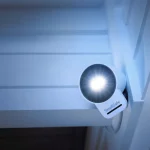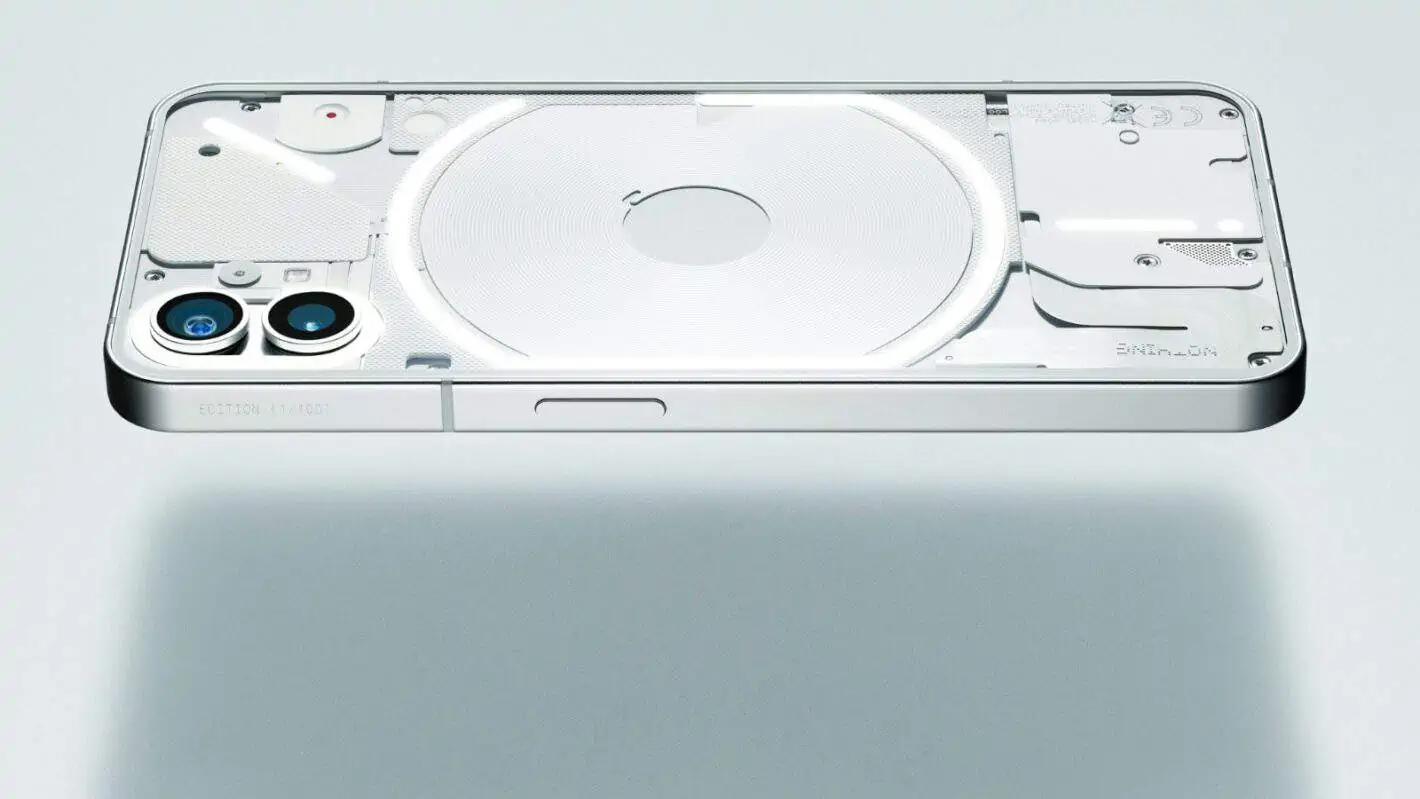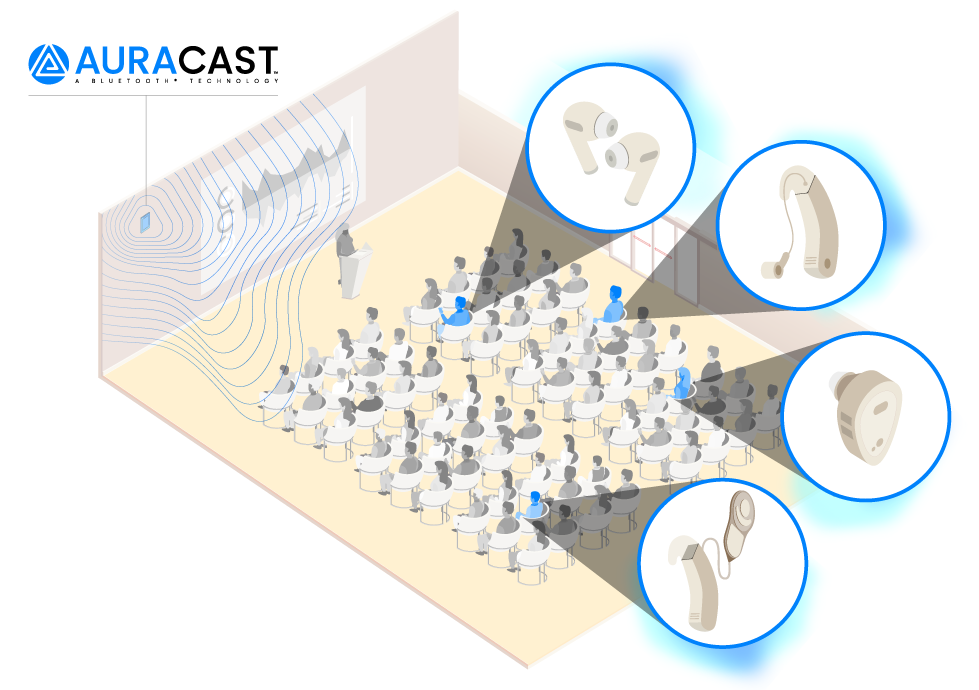
The iPad first introduced us to the magic of augmented reality for astronomy apps. Which your device adds graphics on top of a view of the real world. But some of those original apps and many new ones have come along to Android. Making it just as strong a platform to serve as a companion for stargazers. This grouping has apps that will help the needs of first-time astronomers. Or seasoned professionals who want every tool they can get for astronomical research.
Star Walk 2
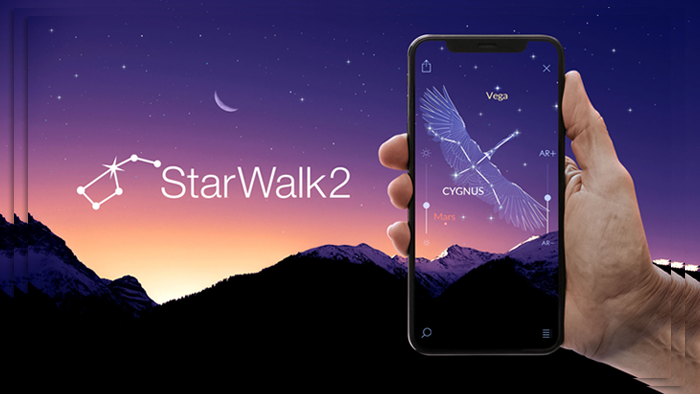
If you’re looking for just one app on your device in case you find yourself under the stars. Then go with Star Walk 2. It’s a follow-up to the original Star Walk, which you can still see in the Play Store. The new edition brings a more minimal design that gets out of your way. So you can focus on the stars. As you’ve probably seen in an iPad commercial. You can hold it above your head or anywhere to get a real-time view of near and far-off celestial objects.
If you have the original, there may only be enough to make you buy the sequel. If you’re a serious stargazer. Some of the new content requires an in-app upgrade. Such as the ability to track satellites, more constellation details, and 3-D models of the planets. Each is $0.99, but the best option is to buy all five extras for $2.31.
Star Walk 2 ($2.99)
Stellarium Mobile Sky Map
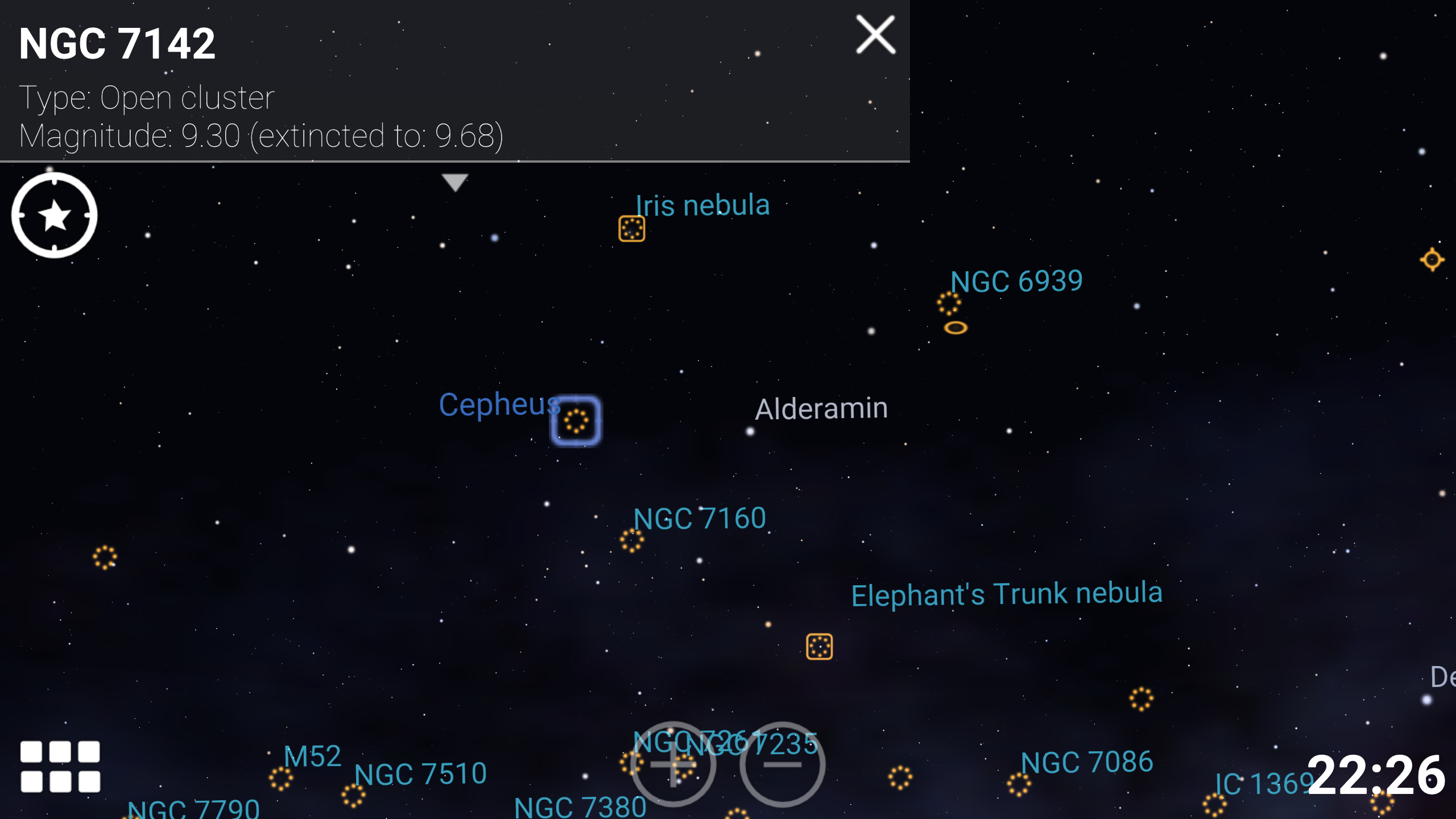
Stellarium features a clever interface with many different overlays you can use to get more details about the night sky. For example, you can get instant information about a specific star by zooming in on it. You can also display an Azimuth or Equatorial grid. However, overloading the features makes the screen a blurred mess of unreadable data. You can also flip the augmented reality on or off. So you can navigate the sky through pinching and zooming. If you’re in a situation where you’d instead not wave your phone or tablet over your head.
Stellarium Mobile Sky Map ($2.49)
Night Sky Pro
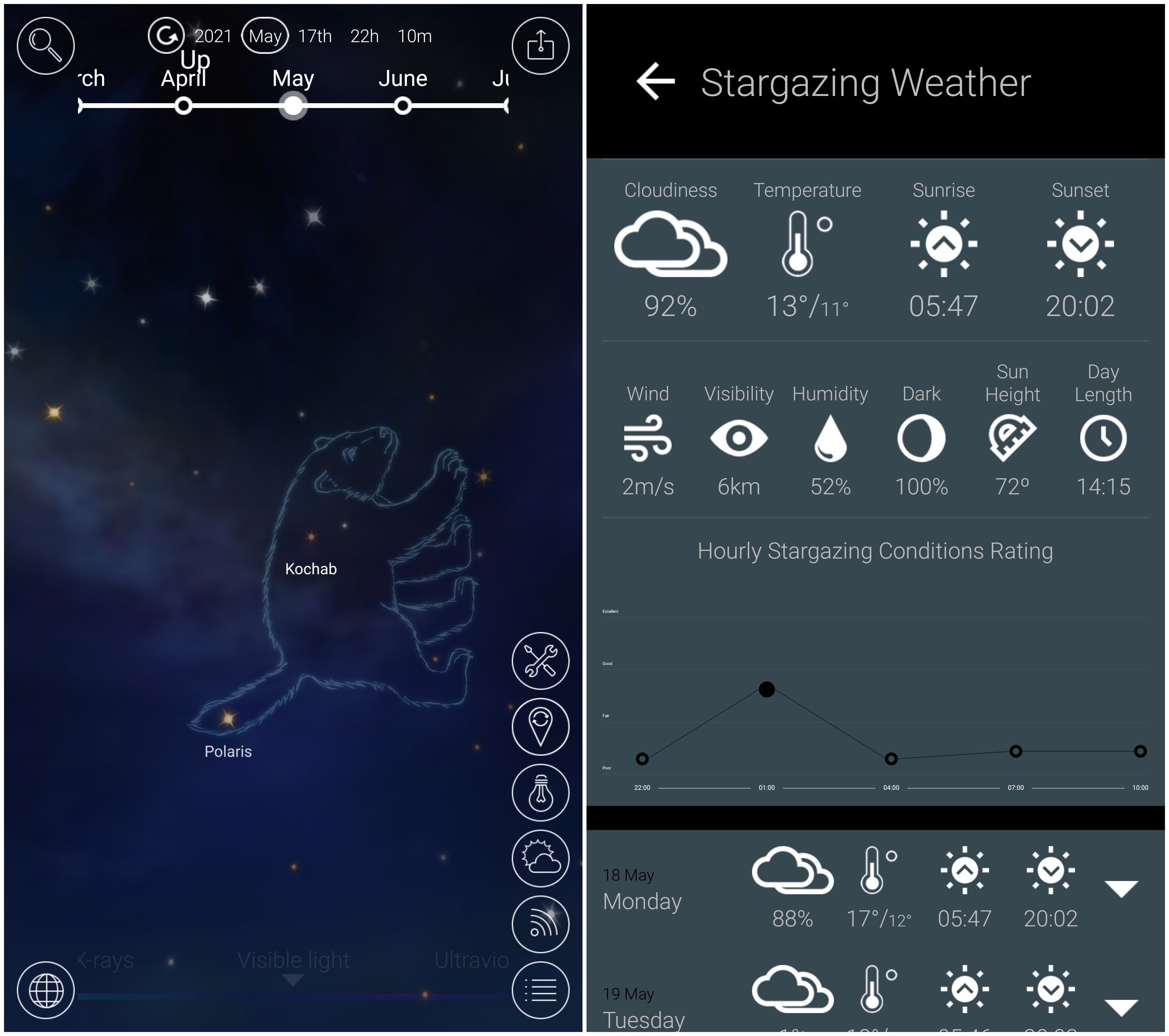
Just like Star Walk, Night Sky Pro uses augmented reality to identify what you can see and what’s beyond the reach of your eyes. The interface is clever. It puts several options in the corner as icons and has a time machine tool at the top. Which you can use to spin forward or backward to see how the sky will or used to look. I also like the weather predictor, which tells you how favorable the conditions are for stargazing.
Suppose you need clarification on whether this whole stargazing thing is worth a measly $2.49. In that case, you can check out Night Sky Lite (free) or The Night Sky ($0.99), which stagger the features depending on how much you pay. It’s worth it to go with Night Sky Pro, as it includes the time machine, deep space objects. With other perks not found in the free or cheaper edition. As the new flagship to the family, I expect to see more features and frequent updates to this edition.
NASA
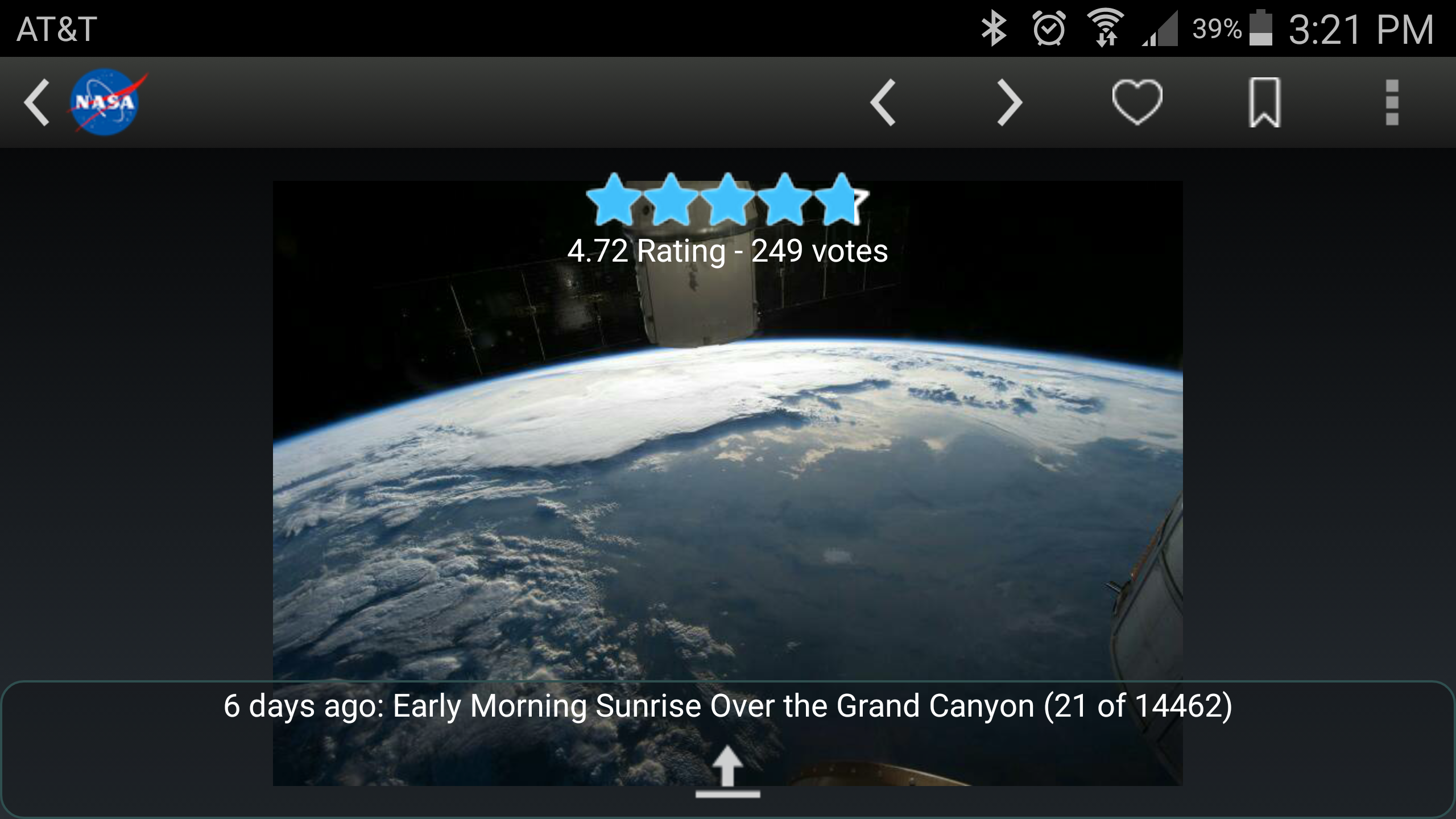
NASA’s Internet presence is already excellent with its famed image gallery. It brings us that and many other features to its Android app. You can get live ISS views through NASA TV, get details on other NASA sites throughout the country. And check in on all of the space agency’s social feeds. The interface could be better, but it could use some touching up to align with Androids Material Design standards. But the app is worth grabbing if you’re a true space geek. And want to keep up with what NASA’s doing.
NASA (free)
ISS Detector Pro

You can spot the International Space Station with the naked eye if you know where to look. ISS Detector Pro is here to help you out. It will tell you where the space station is in the world. Even offer to sound an alarm a few minutes before it’s in your viewing area. Depending on the conditions, you can see it yourself, or you may get a glimpse of its Iridium flares. Which are the sunlight rays reflecting off the satellite’s surface. There’s a free edition if you want to check it out, with ads at the bottom of the screen.
ISS Detector Pro ($2.75)
Sky Guide
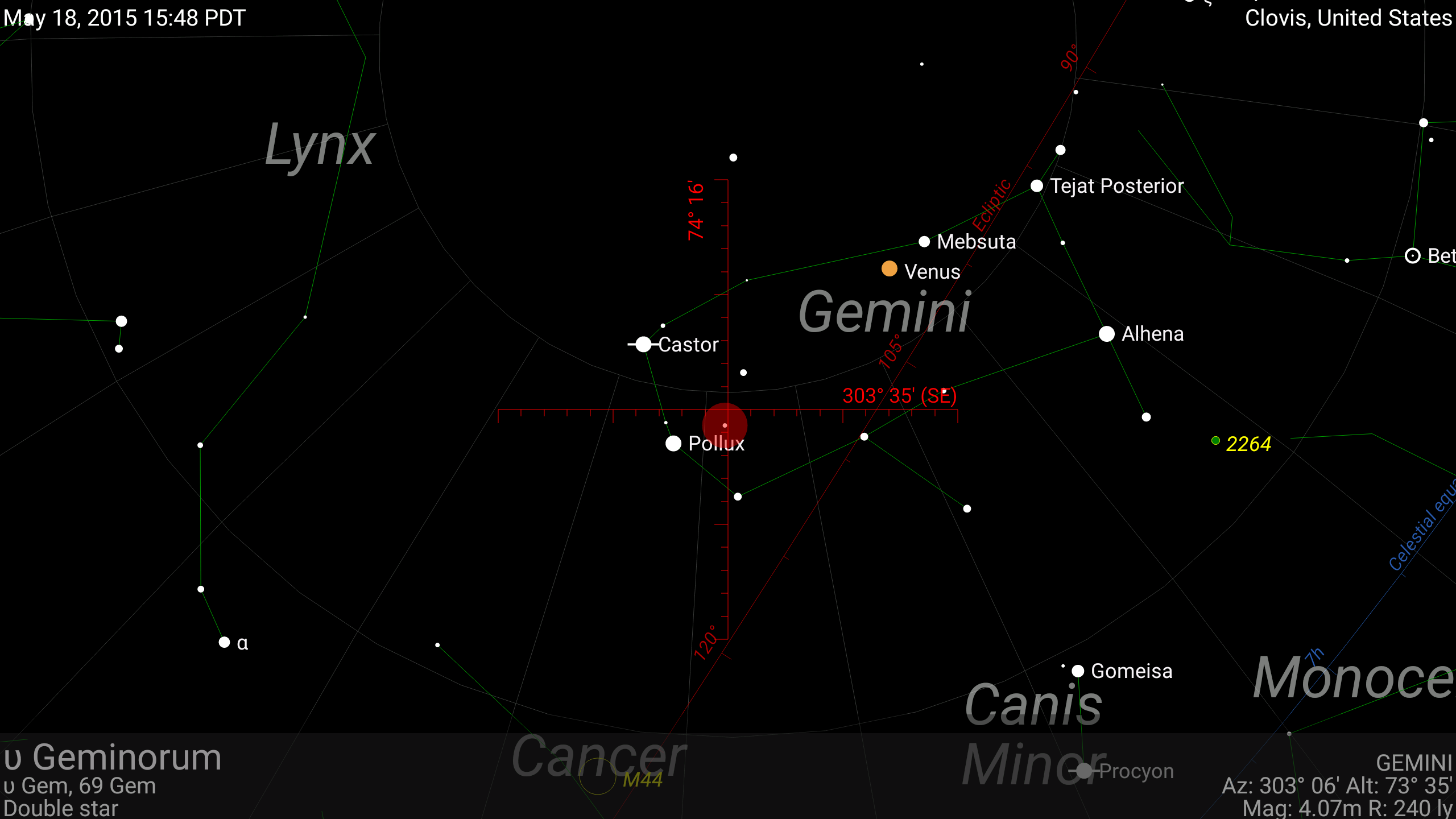
Sky Guide is for true stargazing enthusiasts who want to do more than casually glance at the stars. It includes precise astronomical details and data, with many different options. The app provides access to lots of information for each object. You can get more details by lining it up between the crosshair or searching for its name. Other tools include an astronomical event calculator, an orbit diagram, and several others I’ve never heard of before. It’s a good option for serious astronomers who want an excellent complement to their stargazing kit.
Sky Guide ($2.99)
Night Sky Tools
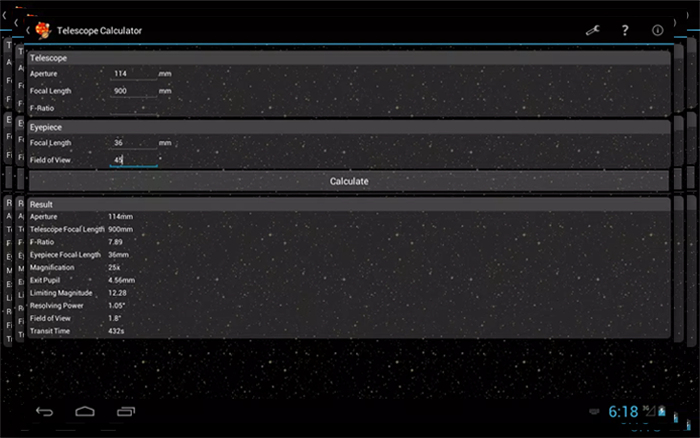
This app is a good mashup of resources for amateur astronomers or others planning to load up their telescopes. And head out for some remote stargazing. That’s because it caches most of the information on your device. If you’re going to one of the few places left in the country where there’s less artificial light. Doing so probably means a spotty connection from your wireless company. Night Sky Tools will help your journey by offering data to help you focus on specific celestial objects. There’s also an observation log. And a daylight map showing when it will be dark enough to check out the sky.
Night Sky Tools (free)
SkyPortal
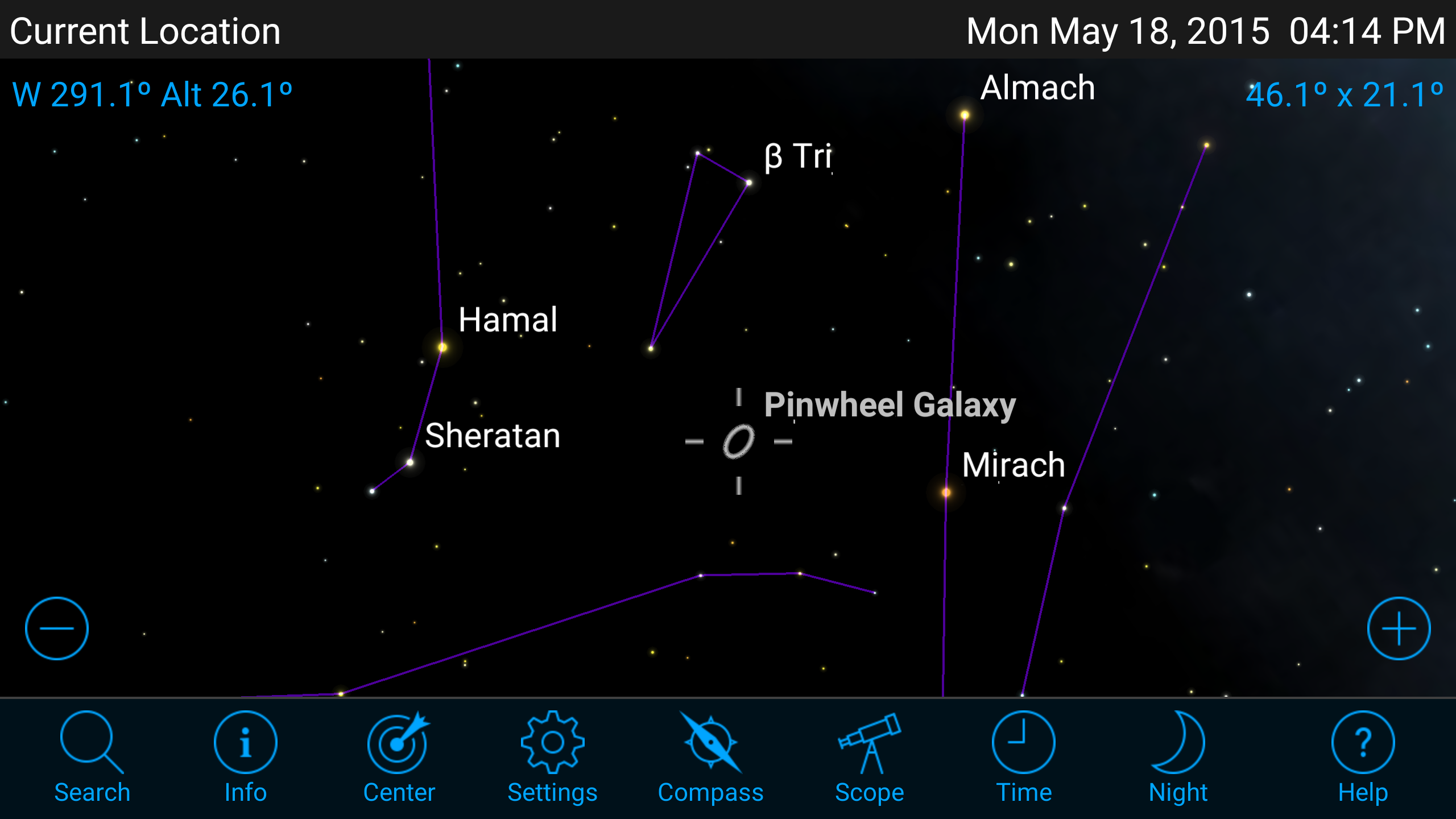
SkyPortal’s main differentiator is its telescope alignment software. Which will improve the accuracy of what you’re looking at for supported devices. The app also uses your location and the time of day. To pull together highlights of what you can expect to see that night in the sky. SkyPortal also has four hours of audio commentary. You can learn more about celestial objects while giving your eyes a rest. Some of the settings reveal an interface better suited to Android Jelly Bean. Still, it’s an excellent free selection if you want to try out the telescope pairing. Or trying to find out what this whole sky-gazing thing is about.
SkyPortal (free)
SkEye Astronomy
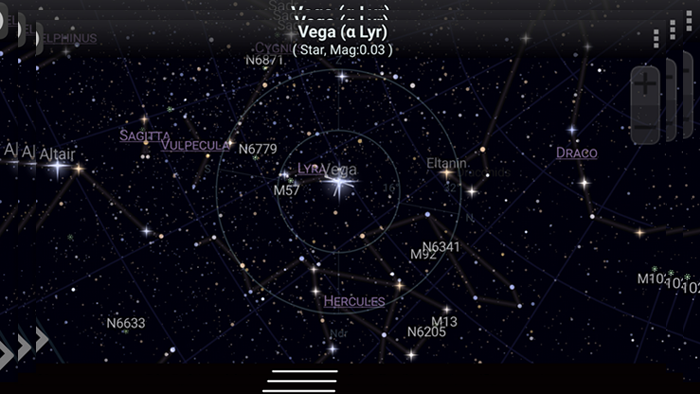
SkEye Astronomy is another good selection for more advanced users. Who plan on heading out into the darkness armed with a telescope. It uses a technology called PUSHTO. That can connect with certain telescopes guiding them for whichever objects you’re out to see. Additionally, it has a grid, and star catalog. Which puts the coordinates front and center, so you can better align your telescope. The interface is more dressed up than other options in this roundup. But it has a lot of tools that may appeal to more sophisticated star watchers.
SkEye Astronomy (free)
Star Tracker
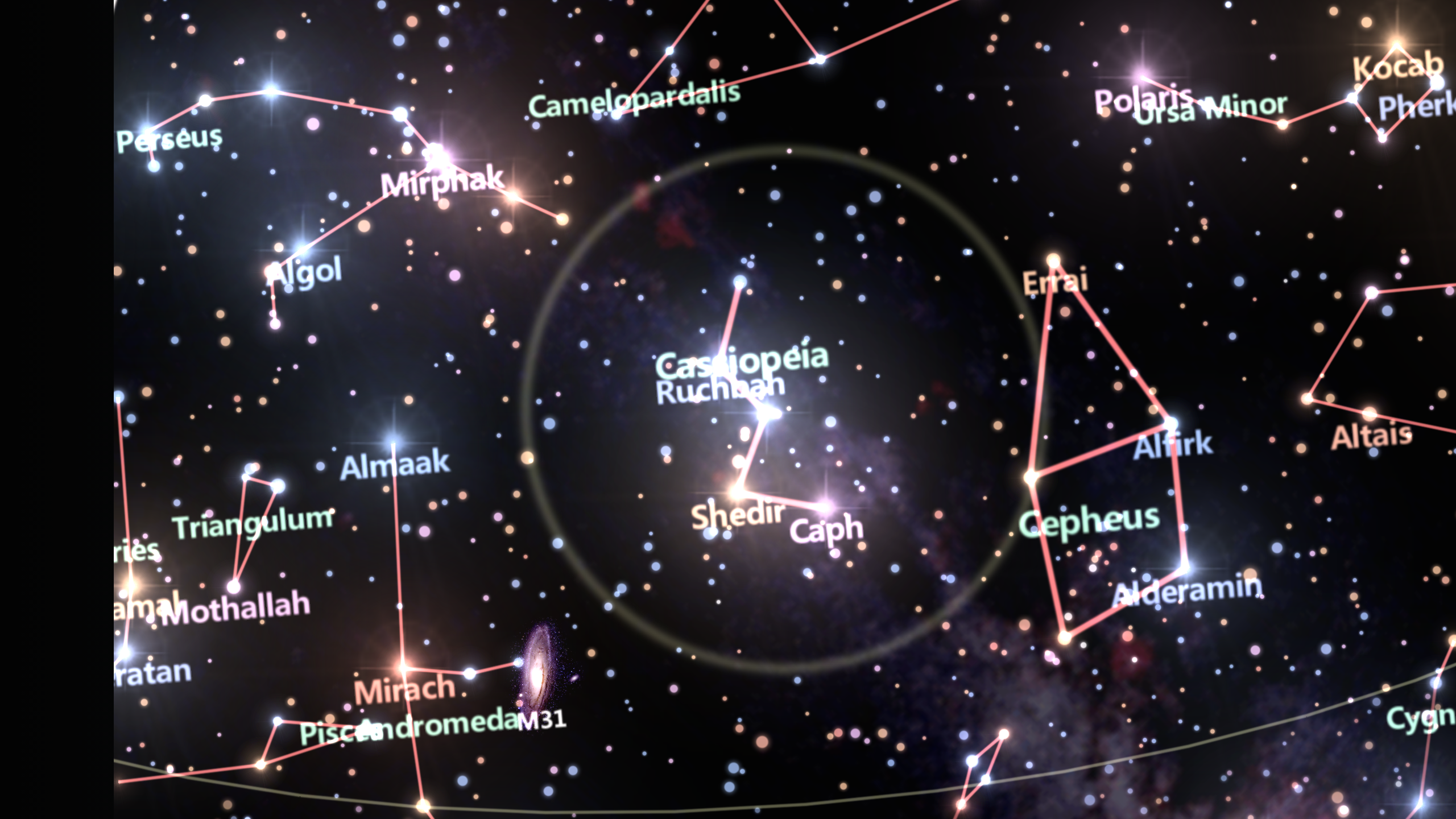
Star Tracker splashes a lot of color light across the night sky. Making it one of the more visually appealing choices amongst this family of apps. As with the others, you can use it as a virtual viewfinder. While waving it around in the sky or pinching and zooming to search for specific stars or constellations. Most core features require an in-app upgrade. Such as searching for celestial objects by name, using a time machine feature. Finding 110 deep sky objects, and more detailed constellation artwork. This app may be a good option for kids. Who may have an easier time identifying constellation patterns with the clear pictures used to illustrate them.
Star Tracker (free)

